Facet Syndrome — Facetectomy or Laminectomy: treatment in the Best Hospitals of Germany
Treatment prices are regulated by national law of the corresponding countries, but can also include additional hospital coefficients. In order to receive the individual cost calculation, please send us the request and medical records.
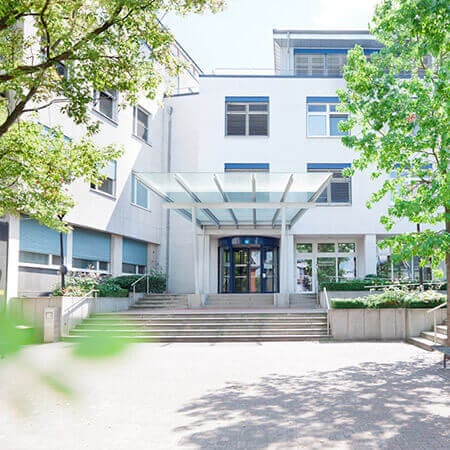
Department of Spinal Surgery
The Department of Spinal Surgery annually treats more than 740 patients with facet syndrome. To improve the condition of the patients, doctors perform endoscopic resection of the facet joints or laminectomy. The surgery involves the use of a three-dimensional O-Arm x-ray system, which protects the spinal cord. The department is headed by Dr. med. A Bitter, who specializes in microsurgical spinal interventions.
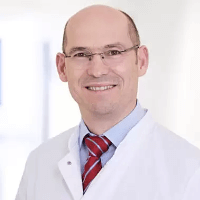
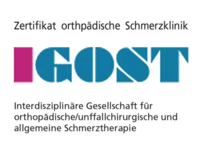
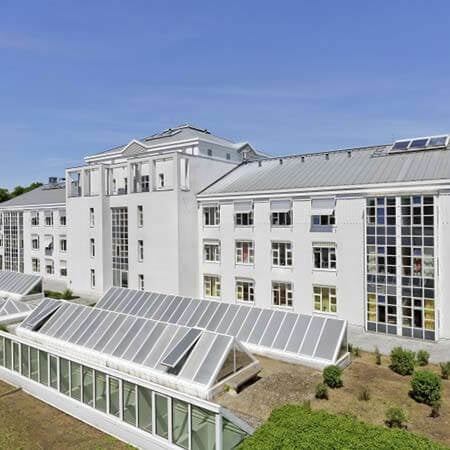
Department of Spinal Surgery
The Department of Spinal Surgery at the Vivantes Auguste-Victoria Hospital all diseases of the spine - both conservatively and operatively. Patients with herniated intervertebral discs, displacement of vertebrae, stenosis of the spinal canal or back pain are treated here. In addition, specialists of the department have a unique experience in the field of complex reconstructive and revision surgeries, which are conducted to continue or correct the previous surgical treatment.
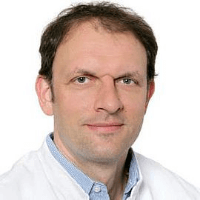
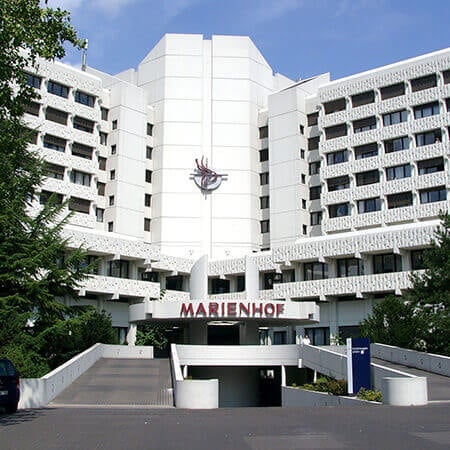
Department of Spinal Surgery
The Department of Spinal Surgery offers the full range of effective treatment methods in the area of its specialization. A highly qualified team of doctors is at the service of the department's patients, who have in their arsenal advanced conservative and surgical treatment methods for pathological changes in the spine. Spinal surgical procedures are performed in modern operating rooms, the technical equipment of which allows spinal surgeons to perfectly perform both major open surgery and sparing interventions: minimally invasive, endoscopic, and microsurgical. Surgical treatment is complemented by a carefully planned course of physiotherapy. This includes procedures such as therapeutic exercises, manual therapy, massage, osteopathic treatment, etc. The department's team of doctors consists of 10 highly qualified specialists who, together with experienced nursing staff, admit more than 1,300 inpatients annually. The medical facility is certified by the German Society for Spine Surgery (DWG) as a level II specialized center. The department's medical team makes every effort to provide each patient with optimal treatment in a pleasant and friendly atmosphere.
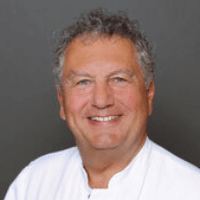
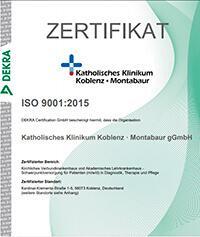
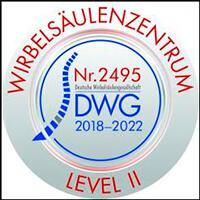
Facet syndrome is one of the most common causes of back pain in people with intense physical activity. The condition occurs as a result of damage to the facet joints, which are responsible for the mobility of the spinal column. In fact, the disease is arthrosis since it is based on the same processes as arthrosis of the large joints of the lower extremities: cartilage wear and degeneration gradually occur with damage to the adjacent bone tissues. The result is constant pain, disability, and a low quality of life. The disease is, however, curable. You can go to one of the countries with a high level of medicine, such as Germany, to receive top-class medical care. On the Booking Health website, you can find out the cost of operations at German hospitals and make your appointment on your preferred dates.
Content
- Diagnostics of facet syndrome
- Who may need a facetectomy for facet syndrome?
- How is a facetectomy performed for facet syndrome?
- Benefits of facet syndrome treatment in Germany
- The cost of treatment for facet syndrome in Germany
A facetectomy involves the partial or total removal of the facet joints, followed by the stabilization of the spine with a rigid fixation of two vertebrae or the implantation of a dynamic stabilization system.
You can seek medical attention from the Hospital Neuwerk Moenchengladbach, the Vivantes Auguste-Viktoria Hospital Berlin, or the Catholic Clinic Koblenz-Montabaur.
The specialists from the Booking Health company will take care of organizing your trip abroad. We will assist you in selecting a hospital and scheduling an appointment on your preferred dates. We will also book hotel and airline tickets, meet you at the German airport, and take you to the hospital by car.
Diagnostics of facet syndrome
Patients who suffer from facet syndrome come to the hospital with complaints of back pain, which:
- can be unilateral or bilateral;
- is felt in the leg but does not fall below the knee;
- appears after prolonged episodes of immobility, and gradually decreases after the movement.
Morning spine stiffness is also possible. Unlike many other spinal diseases, facet syndrome is not characterized by neurological disorders (mobility and sensitivity in the areas of innervation of the spinal nerves are not affected), which helps doctors in the differential diagnostics of the disease.
Clinical diagnostics:
- palpation of the facet joints;
- the Kemp test is a provocative test that detects painful movements in the spine.
Instrumental diagnostics can reveal degenerative changes in the facet joints.
The simplest method of diagnostics is an X-ray scan. Doctors in Germany mainly use more accurate diagnostic methods, such as CT and MRI scans. They allow the specialists to assess the severity of the disease, which can be the following:
- grade 1 is characterized by the narrowing of the joint space up to 2 mm, small bony growths, and a mild joint hypertrophy;
- grade 2 implies a decrease in joint space of 1 mm or more, as well as moderate bony growths or erosion in the subchondral bone tissue;
- grade 3 occurs when there is practically no joint space, there are large bony growths, and subchondral bone erosions and cysts appear.
Another informative method of diagnostics is the facet joint block with local anesthetics. A positive test result is an 80% reduction in pain and an increase in the range of motion in the spine after block.
Who may need a facetectomy for facet syndrome?
Facet syndrome is usually treated with conservative methods. If systemic drugs do not work, they will be injected directly into the joint. If this treatment does not help, doctors can perform a facet joint block, which provides improvement for up to 6 months.
If there is a good effect from the block, doctors can destroy the nerve endings that conduct pain impulses from the facet joints. This treatment option is called denervation. The procedure can be performed using a laser or radiofrequency method, whereas cryoneurolysis (freezing) or chemical denervation are less commonly used. Such procedures are available at German hospitals.
Open surgery of the spine for facet syndrome is not a common treatment option. In medicine, such operations can be performed to treat facet syndrome if:
- other treatment options (conservative treatment, facet joint block, or denervation) have not relieved the pain;
- there are concomitant diseases, for example, if spinal stenosis has developed due to facet hypertrophy.
In such cases, surgery comes to the rescue, as doctors can partially or totally remove the damaged joints. Two adjacent vertebrae will then be fixed firmly, or dynamic fixation systems may be implanted. Germany offers advanced systems, which are actually artificial facet joints. They fully replace them and provide physiological movements, preventing damage to the adjacent segments of the spine.
How is a facetectomy performed for facet syndrome?
A facetectomy is the surgical removal of the facet joint. This is an open operation performed through an incision a few centimeters long. In modern medicine, microsurgical techniques are used to reduce the trauma of surgery and minimize the amount of resected tissue. But still, the stability of the spine during treatment is inevitably disturbed, and therefore patients additionally require the implantation of stabilizing systems.
The main objective of their implantation is the prevention of degenerative changes at adjacent levels of the spine. Previously, doctors simply fixed the vertebrae motionless (spinal fusion), but this only provided temporary relief. Due to impaired spinal mobility, degenerative processes continued. And what is more, many patients experienced pain again, and some required additional operations.
Doctors in countries with a high level of medicine are abandoning rigid fixation in favor of dynamic fixation. This procedure allows for not only ensuring the stability of the spine but also maintaining its mobility. After a laminectomy and a facetectomy, German doctors implant total facet arthroplasty systems. These may be the following:
The Total Posterior Arthroplasty System (TOPS) has a transpedicular fixation mechanism. It is made of metal and polymeric materials. The device maintains movement in the spine and normal disc height.
The Total Facet Arthroplasty System (TFAS) is a system for the replacement of the damaged facet joints by placing metal implants. The principle is the same as for the replacement of large joints of the lower extremities: the patient's own joint is removed, and an artificial one is implanted. The implantation of this system requires a laminectomy with a total facetectomy. Studies show that this system restores movements in the operated segment, and they become as close to physiological as possible.
Benefits of facet syndrome treatment in Germany
If you have been diagnosed with facet syndrome, you can undergo your diagnostics and treatment abroad. You may not need a facetectomy and a laminectomy, and the problem can be solved with less traumatic techniques. For example, treatment can be carried out using radiofrequency facet joint denervation. If open surgery is required to treat the disease, the treatment in a country with top-class medicine will allow you to solve the problem more safely and reliably.
There are a few reasons for you to undergo your treatment in Germany. These are the following:
- modern and well-equipped hospitals;
- high-quality preoperative and intraoperative diagnostics;
- the latest modifications of surgical procedures for facet syndrome treatment;
- a low risk of complications;
- total arthroplasty systems (artificial facet joints) are used instead of rigid (fixed) stabilization of the spinal column;
- the stability of the spine is maintained after surgical treatment;
- reliable results with a low risk of back pain recurrence;
- a low risk of degeneration of the adjacent segments of the spine after surgery;
- several spinal diseases can be treated concurrently, as patients with facet syndrome can also have a herniated disc or spinal stenosis;
- full-fledged rehabilitation after the operation, which will allow a patient to get back on their feet and return to their normal life in the shortest possible time.
The cost of treatment for facet syndrome in Germany
You are welcome to use the Booking Health service if you want to find out the cost of treatment. Our website specifies prices for all procedures and surgical interventions available for facet syndrome treatment. You can just enter your diagnosis into the search bar and you will get a list of available hospitals and the cost for each treatment method.
The website provides patients with the ability to sort hospitals by price. You can choose a more cost-effective option. In any case, when you make your appointment through the Booking Health service, the cost of treatment will be lower for you than when contacting a medical center directly, since there are no taxes for foreign patients.
In addition, you will receive insurance against unforeseen medical expenses. This means that the initial cost of your medical care program will not increase. Even if additional procedures are required, the excess cost of the services will be covered by the insurance company.
If you choose a medical care program through Booking Health, you will not have to worry about organizing your trip to Germany. Our specialists will contact the hospital themselves, agree on everything with its administration, and help you shorten the waiting period for the start of your treatment. They will also book hotel and airline tickets for you and translate your medical records. We will meet you at the airport and take you to the hospital in Germany by car. After the completion of your treatment, we will take care of your return transfer.
Authors:
The article was edited by medical experts, board-certified doctors Dr. Nadezhda Ivanisova and Dr. Vadim Zhiliuk. For the treatment of the conditions referred to in the article, you must consult a doctor; the information in the article is not intended for self-medication!
Sources:

